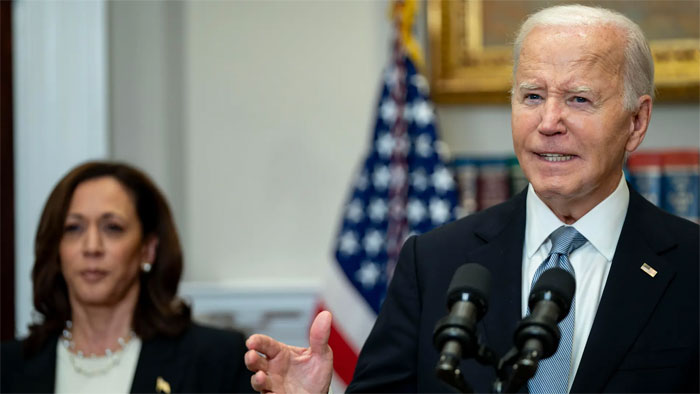
by Guillermo Alvarado
As predicted in a previous commentary, the weekend was key in defining the resignation of the President of the United States, Joseph Biden, to maintain his candidacy for re-election, who finally listened to an increasingly strong clamor within his party and stepped aside.
However, this does not mean that there is now peace and quiet, on the contrary, the debate is now open as to who is the right person to beat Donald Trump on the rocky road to the White House.
In what may have been his last major executive act, Biden flagged his vice-president, Kamala Harris, to continue the campaign, but in practice this does not mean an immediate nomination, since the decision is not made by the Oval Office, but by the Democratic National Convention.
To give you an idea, practically all the important figures of this political grouping welcomed the decision of the still president to get out of the race, but not all of them expressed a strong support in favor of Harris.
For example, former President William Clinton and his wife Hillary said they would do their best to support her in the race.
Barack Obama, however, welcomed Biden's gesture, calling him a patriot capable of leading the country in dangerous times, but refrained from mentioning the vice president as a natural replacement in the process.
"We will be navigating uncharted waters in the coming days, but I am extraordinarily confident that our party leaders will be able to create a process that will produce an outstanding candidate," Obama said.
It is a reality that Kamala Harris' role during these three and a half years was opaque and did not represent a decisive weight in a key problem, such as the migratory flow from the south to the north of the continent and the management of the hot border with Mexico, which worsened month by month.
Other names mentioned as possible replacements for Biden are Gavin Newsom, governor of the state of California, who has been campaigning indirectly for several months, and Gretchen Whitmer, who heads Michigan, where there are three strong sectors of the Democratic vote: workers, African-Americans and Arabs.
Particular attention is paid to Josh Shapiro, Governor of Pennsylvania, a state that can decide the election because of the number of delegates it contributes. It is not just a popular saying that if you want to be President of the United States, you have to win Pennsylvania.
There are critical days ahead in the northern powerhouse, and we will be watching, friends, with the utmost attention.

